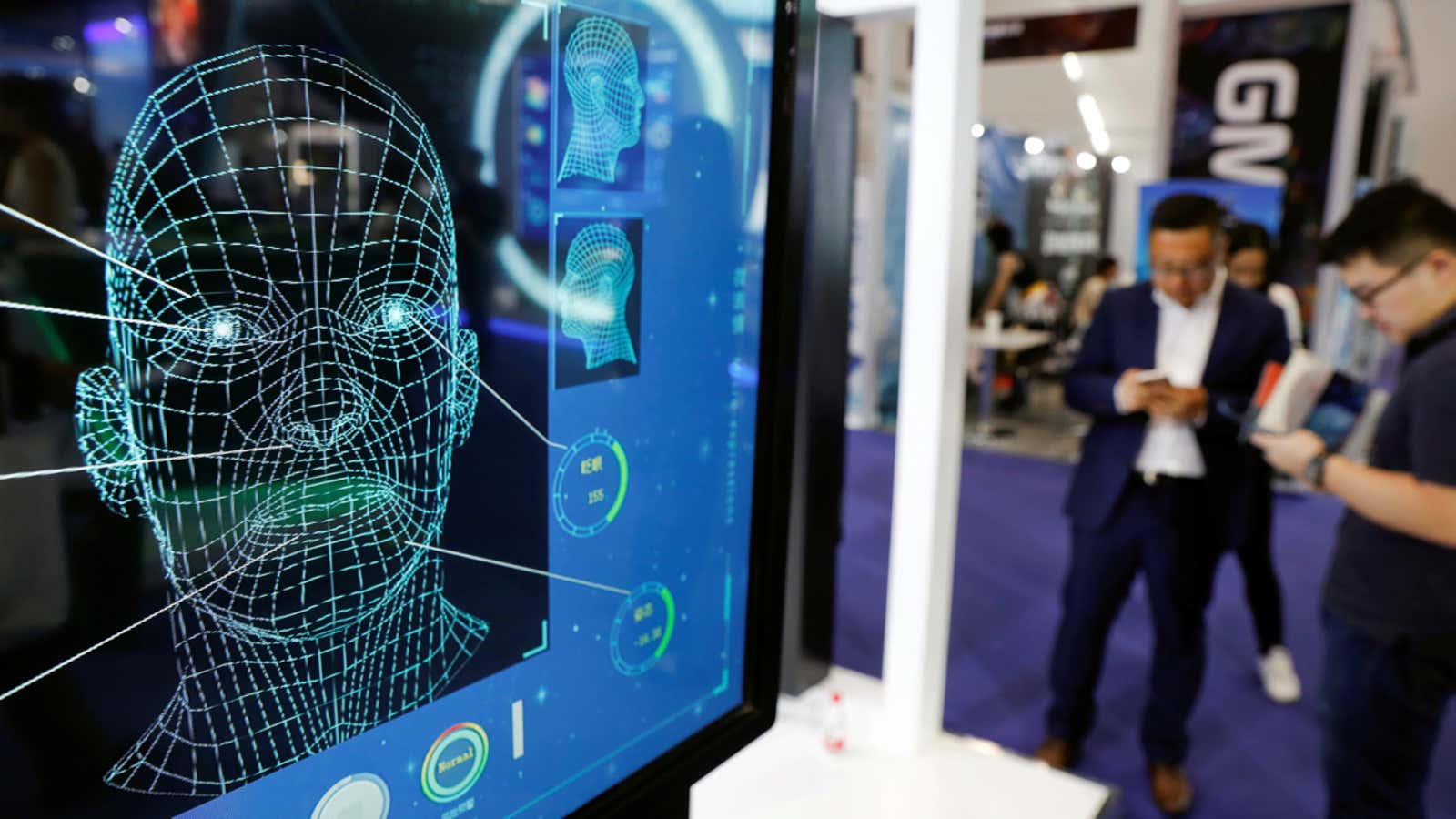For all the promise it holds for the future, artificial intelligence is still guilty of historic bias. Voice recognition software struggles with English accents that are not American or British and facial recognition can be guilty of racial profiling.
As this technology increasingly outpaces human discourse on race, China seems to be getting ahead on recognizing a diverse range of faces across the wider world, despite its own struggles with racial insensitivity.
Facial recognition in particular has trouble differentiating faces that are not white, according to a study by MIT’s Media Lab. While tech companies grapple with how to teach machines about race, their Chinese competitors are turning to Africa to speed up their algorithms’ diversity training.
In March, the Zimbabwean government signed a strategic partnership with the Gunagzhou-based startup CloudWalk Technology to begin a large-scale facial recognition program throughout the country. The agreement, backed by the Chinese government’s Belt and Road initiative, will see the technology primarily used in security and law enforcement and will likely be expanded to other public programs.
“The Zimbabwean government did not come to Guangzhou purely for AI or facial ID technology, rather it had a comprehensive package plan for such areas as infrastructure, technology and biology,” CloudWalk CEO Yao Zhiqiang told China’s Global Times.
“I watched with envy as Chinese people were able to pay for meals with their lovely faces,” said Shingi Magada, a Zimbabwean consultant on the partnership, told Global Times. “So I can’t wait until this comes to the beautiful people of Zimbabwe.”
Zimbabwe may be giving away valuable data as Chinese AI technologists stand to benefit from access to a database of millions of Zimbabwean faces Harare will share with CloudWalk.
“The differences between technologies tailored to an Asian face and those to a black one are relatively large, not only in terms of color, but also facial bones and features,” Yao said. The machine learning needed to expand the technology’s capability would require sufficient data, the CEO explained.
CloudWalk has already recalibrated its existing technology through three-dimensional light technology in order to recognize darker skin tones. In order to recognize other characteristics that may differ from China’s population, CloudWalk is also developing a system that recognizes different hairstyles and body shapes, another representative explained to the Global Times.
China is focused on becoming the world leader in artificial intelligence, using facial recognition for everything from catching criminals to buying at KFC. With the largest surveillance system already in place, China is also building one of the world’s most comprehensive facial recognition databases. Rolling out the technology in a majority black population will allow CloudWalk to more clearly identify other ethnicities, getting ahead of US and European developers. While African facial-recognition startups are in operation, they can’t compete with the scale and backing that CloudWalk and others enjoy.
The public-private partnership between the Zimbabwean government and CloudWalk is not the only database China’s AI engineers will have access to. Last year, the little-known Transsion became the dominant player in Africa’s mobile market, overtaking Samsung. Its main strategy has been to target its Itel, Tecno and Infinix phones to users who can’t afford Apple, Samsung and other smartphone brands. In April Transsion unveiled a new phone, the Tecno Camon X Pro, with facial recognition technology that will be on sale in Africa. This is a commercial entity collecting the data of millions of customers, without the oversight that companies like Apple have faced.
Despite the promised progress, these rollouts of facial recognition are also happening without the ethical and legal questions raised in developed markets. In exchange for affordable smartphones or innovations that would speed up bureaucratic processes, it seems African customers are giving up personal data that is yet to be given a monetary value. It could very well be the latest example of Africa handing over natural resources to China for skewed compensation.




